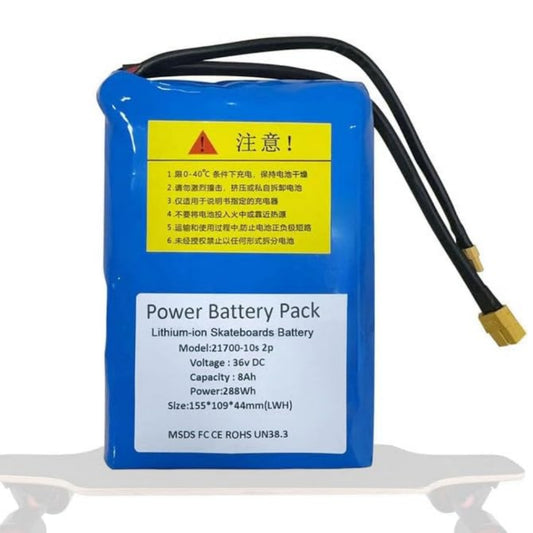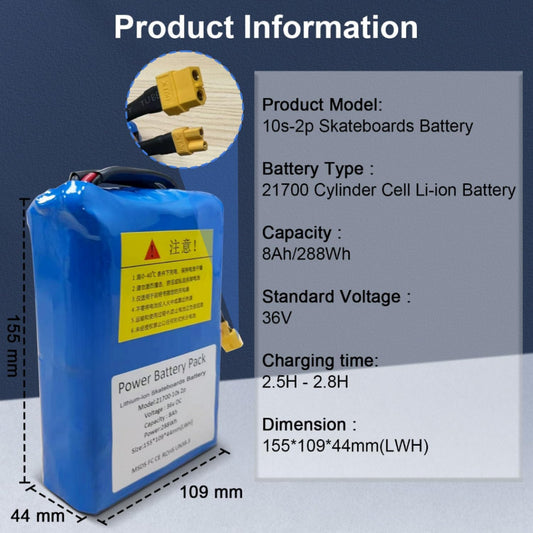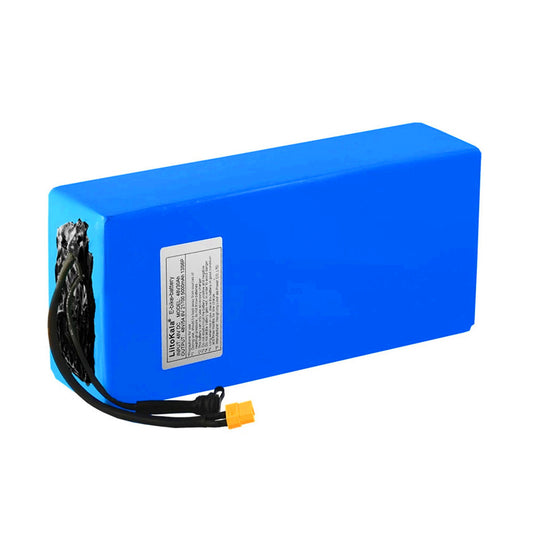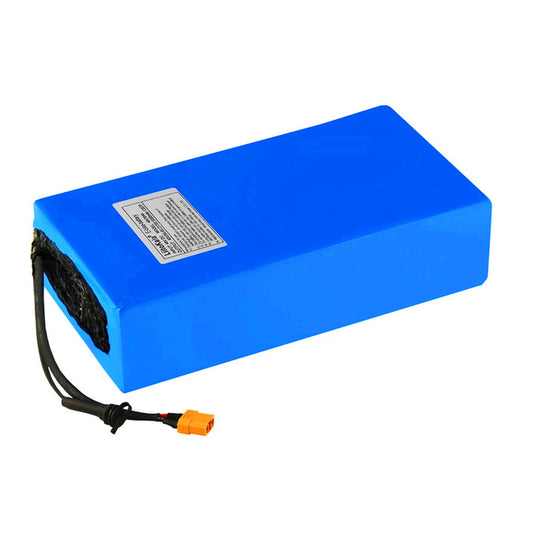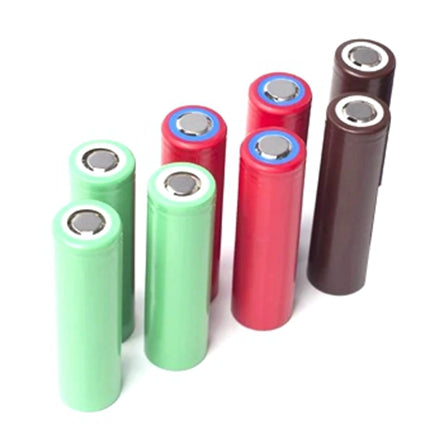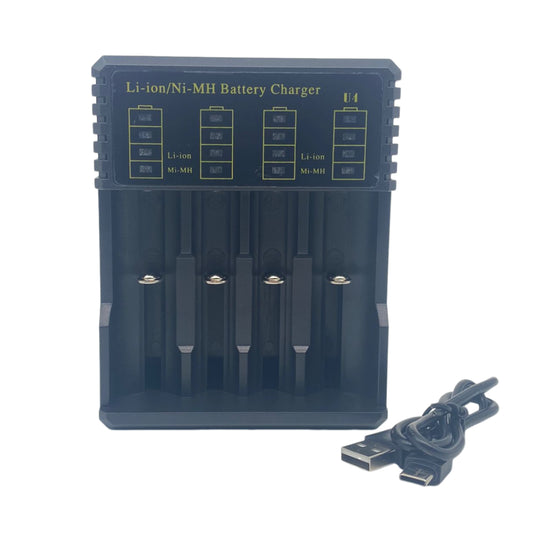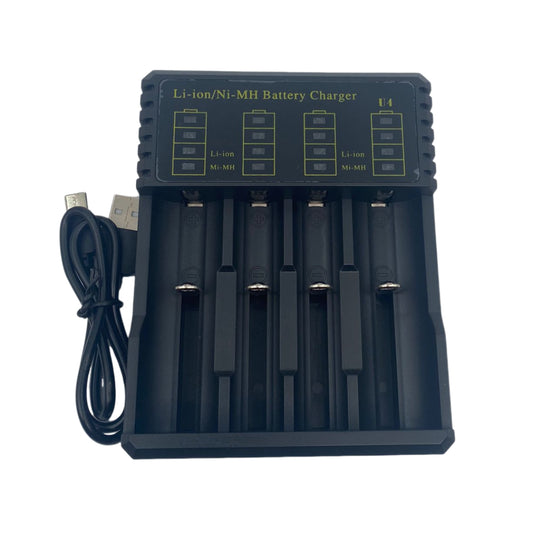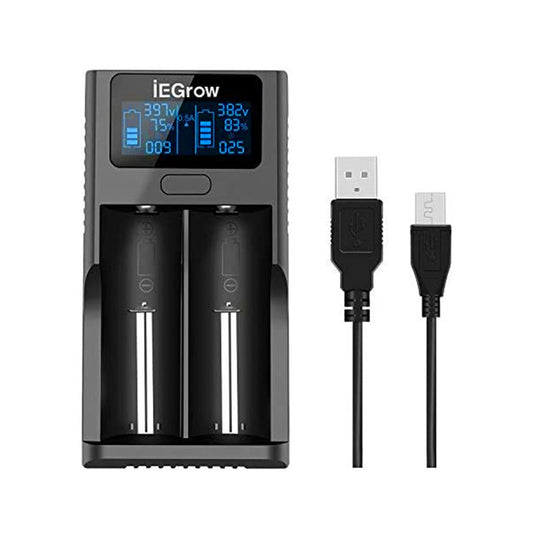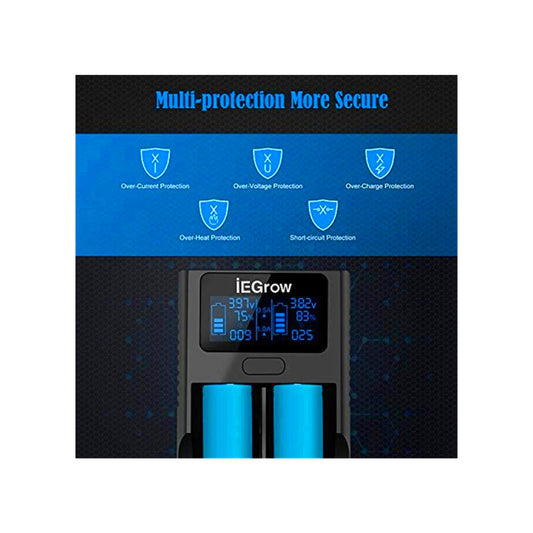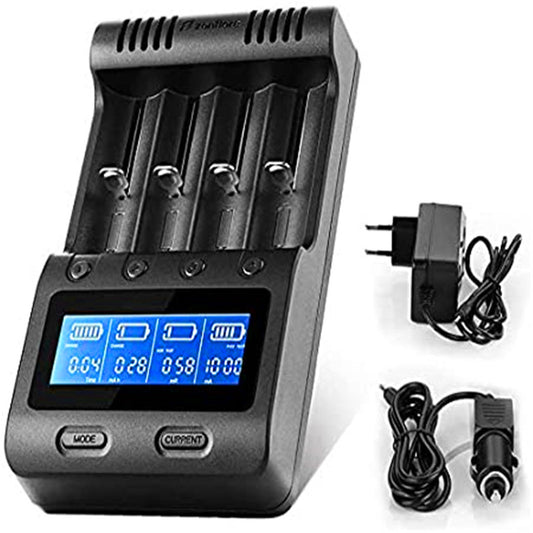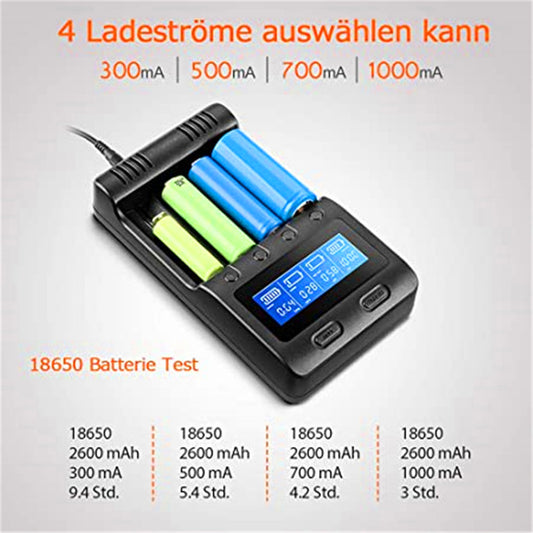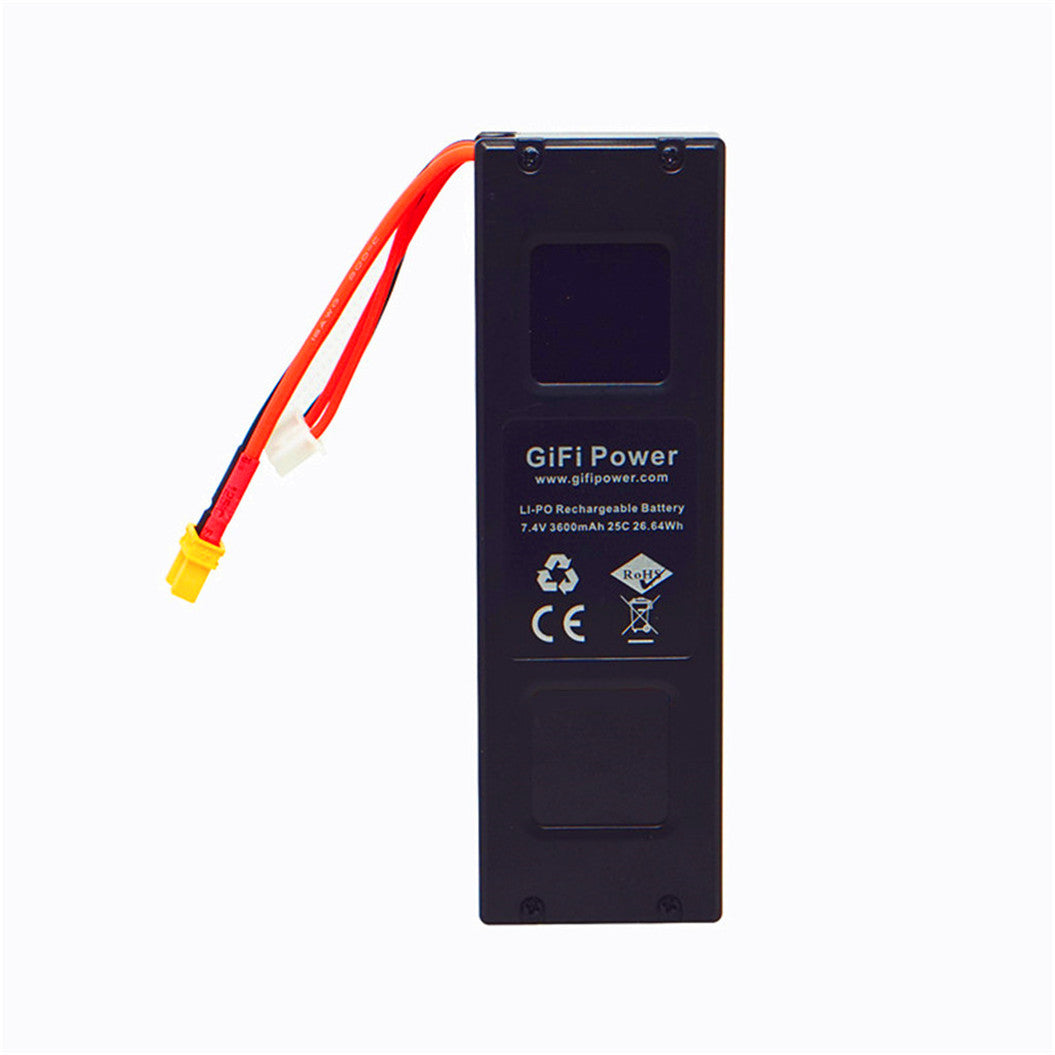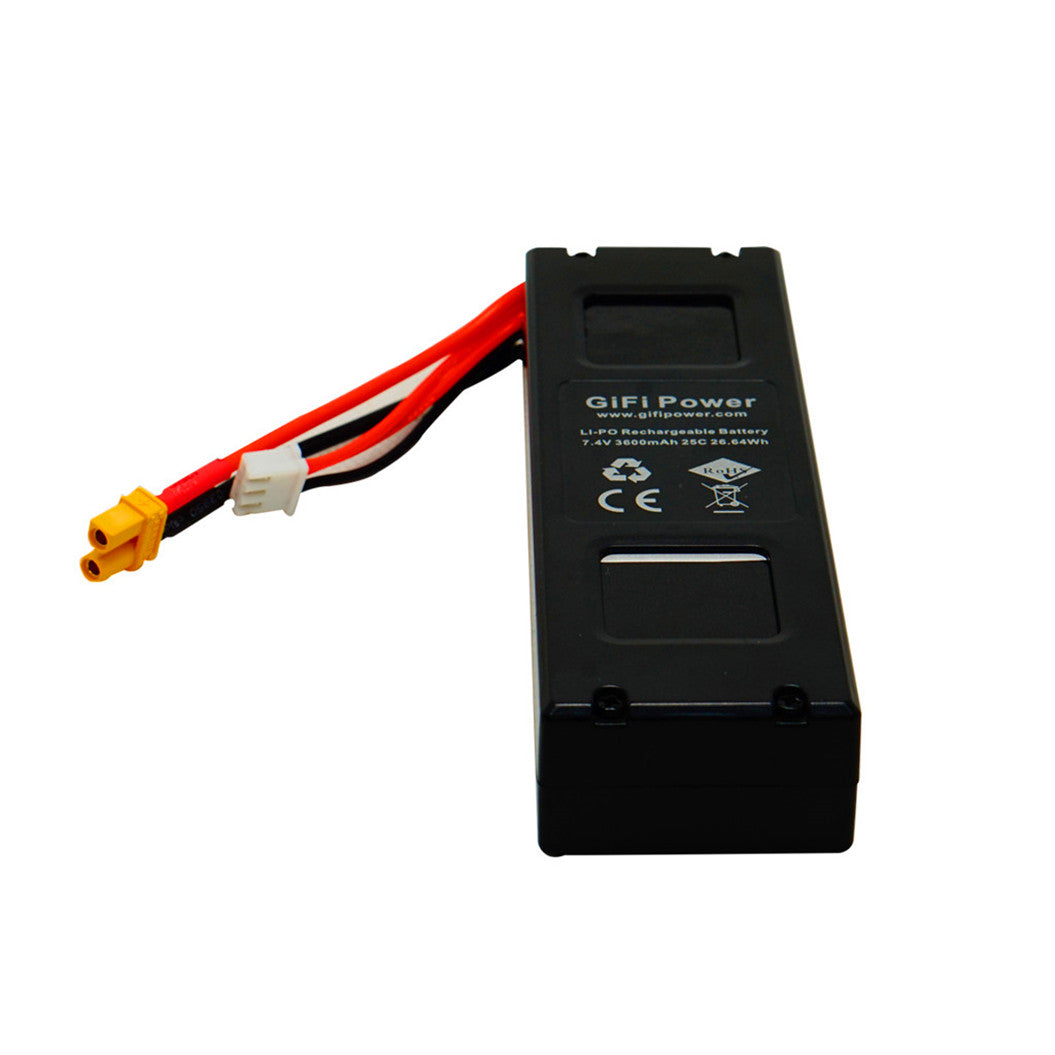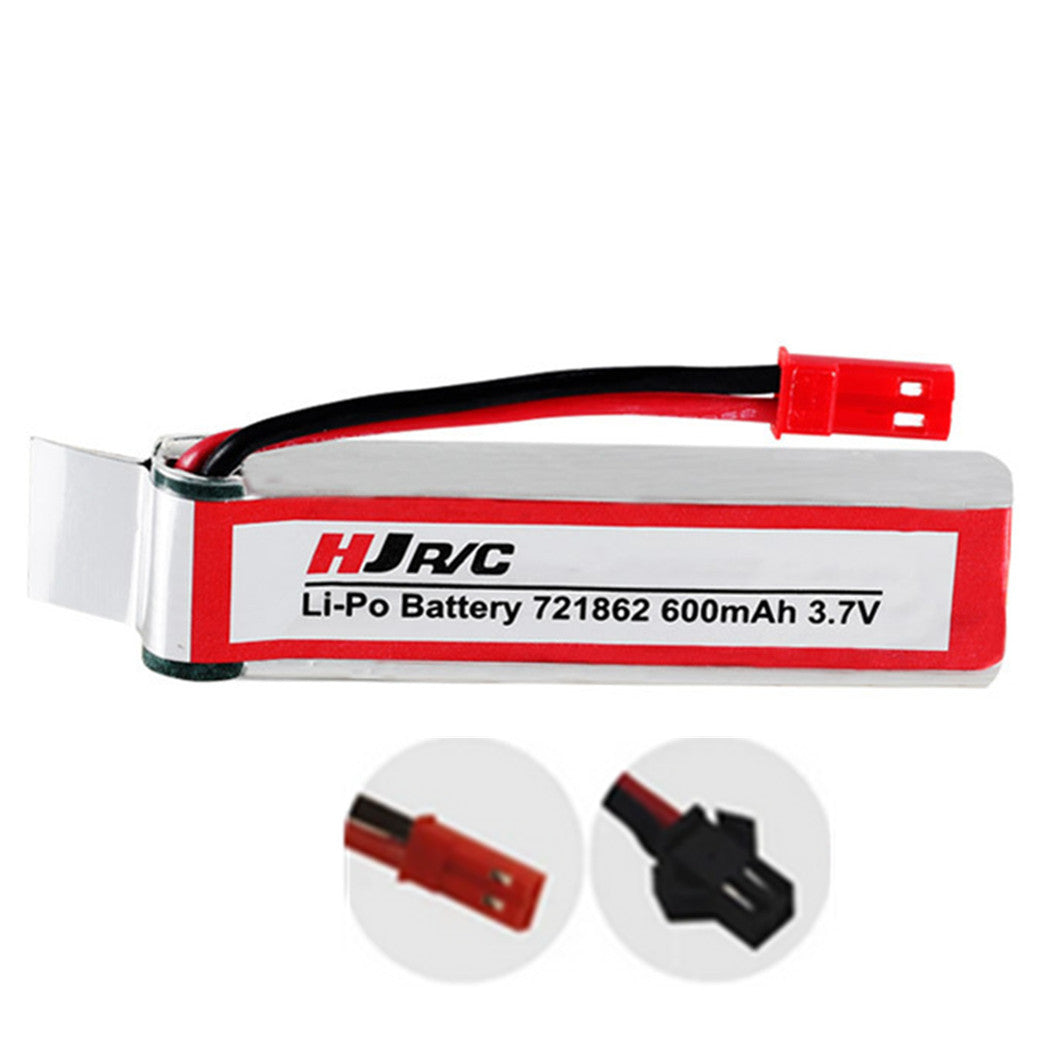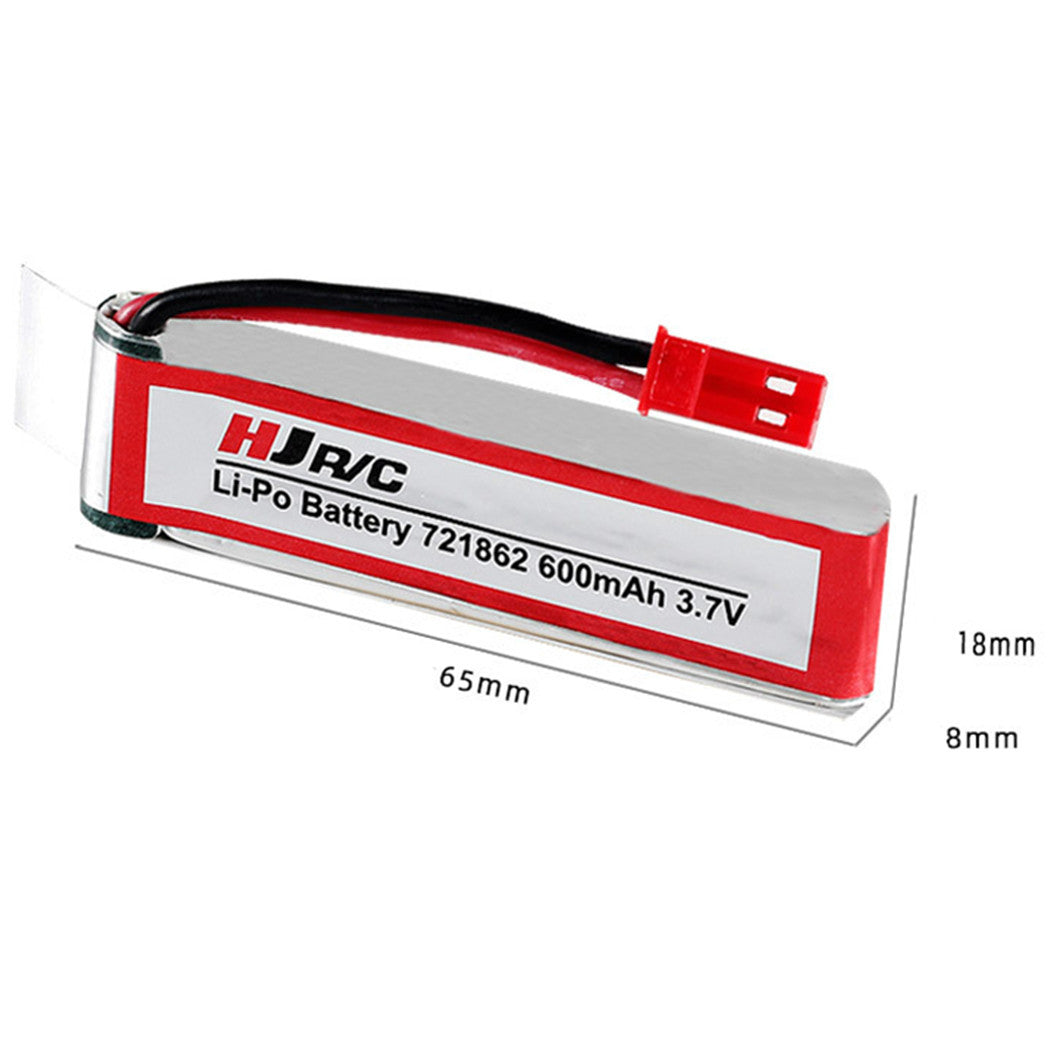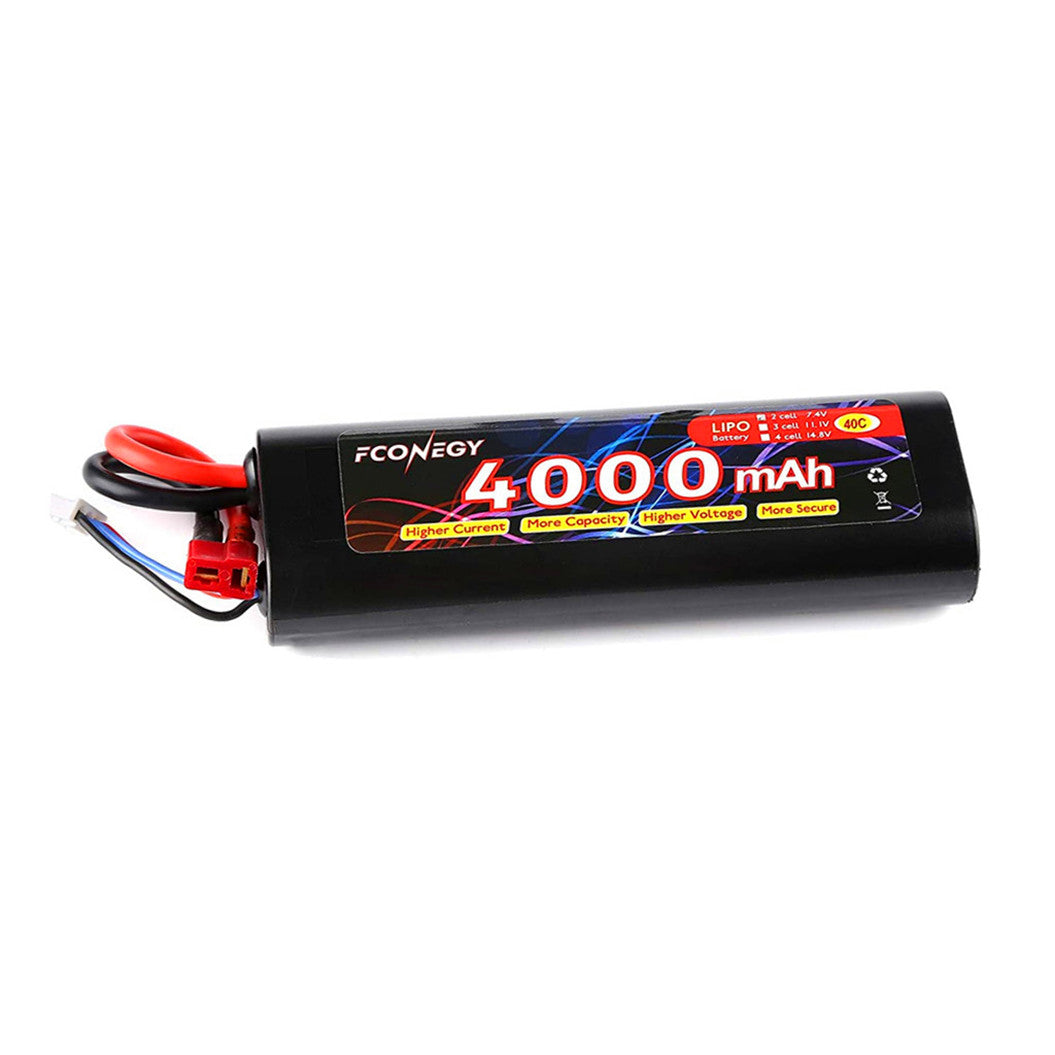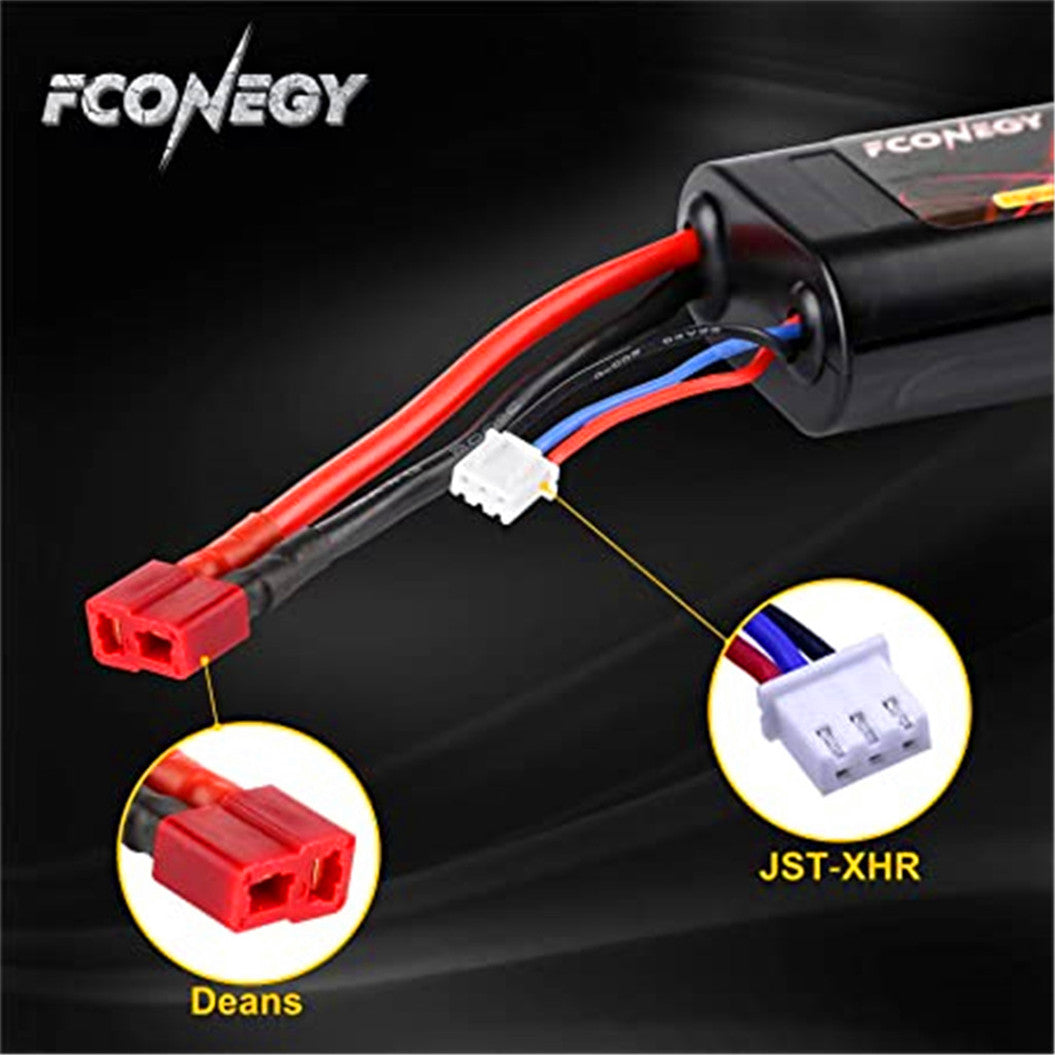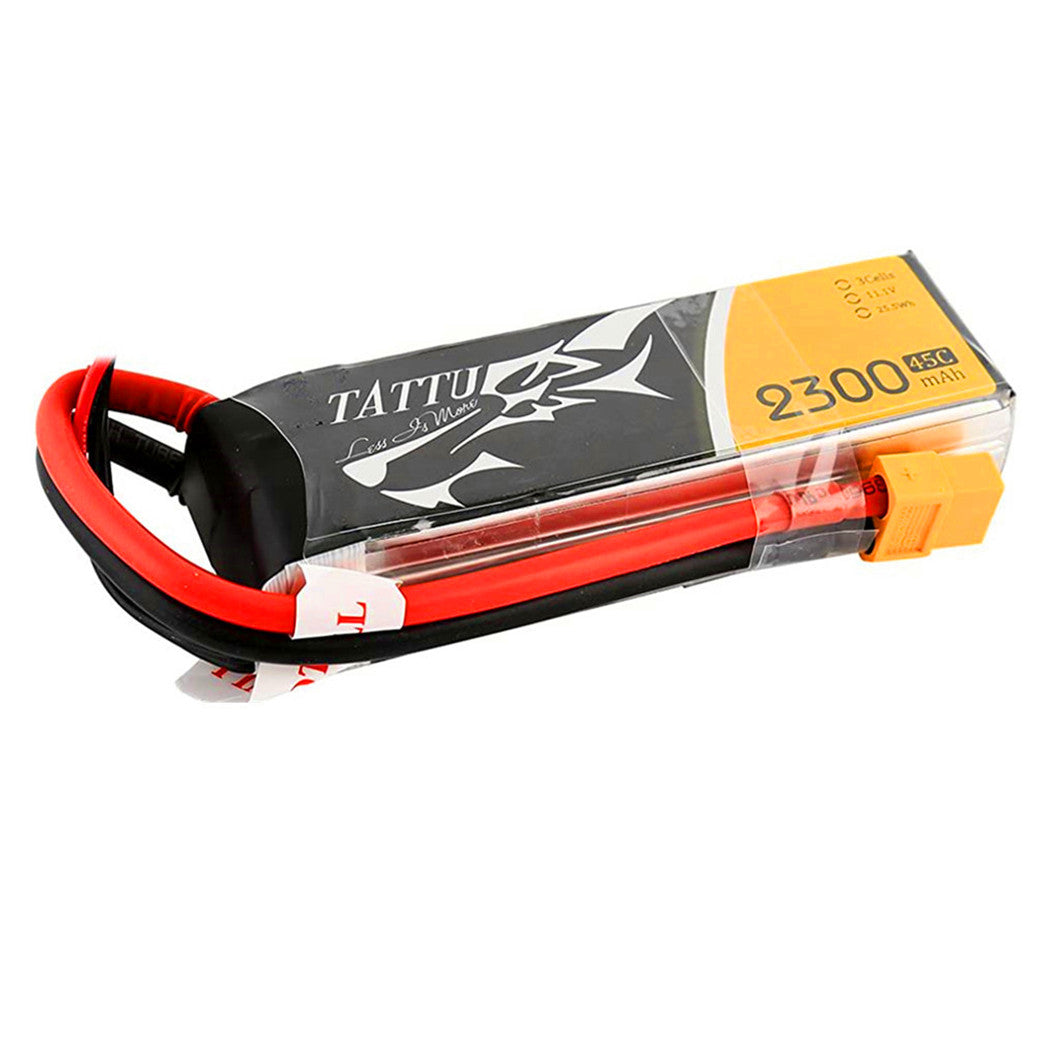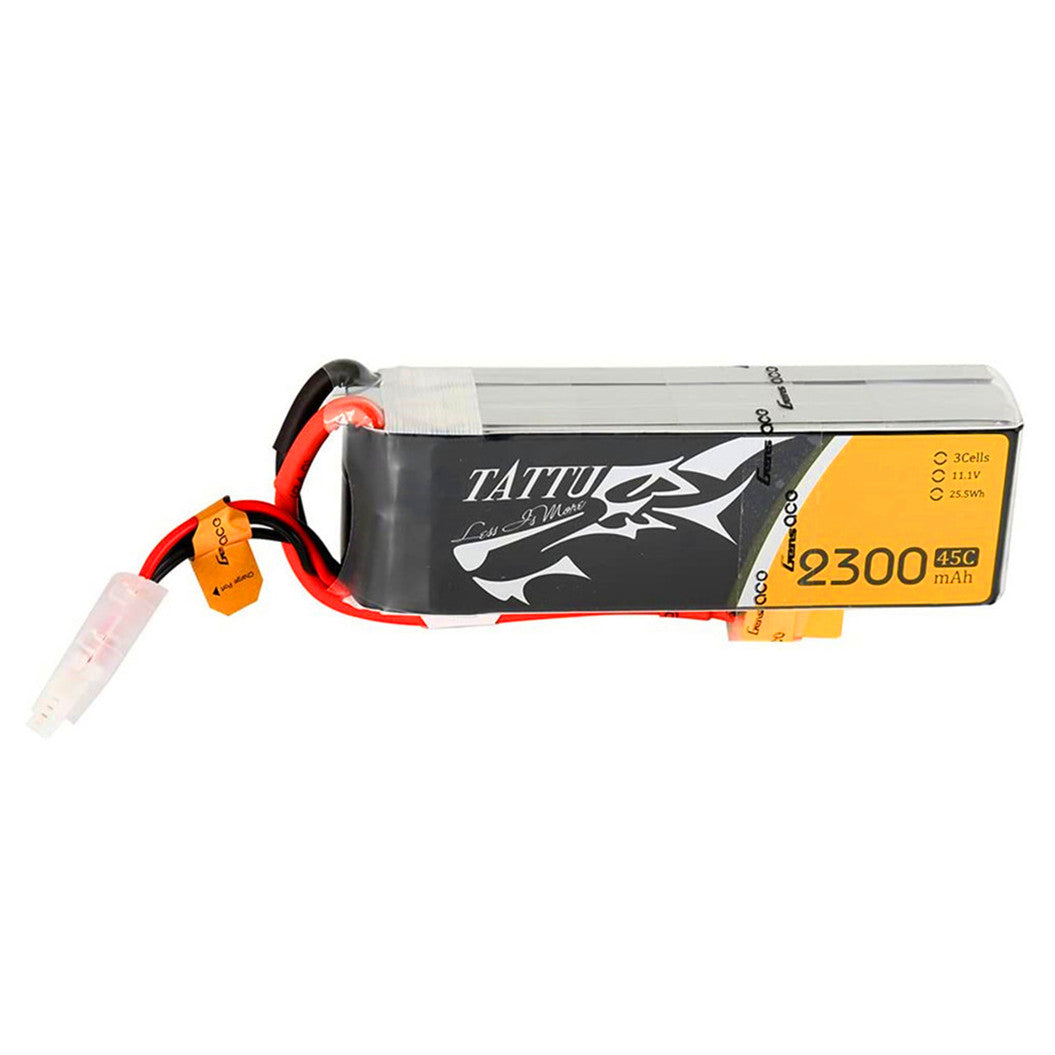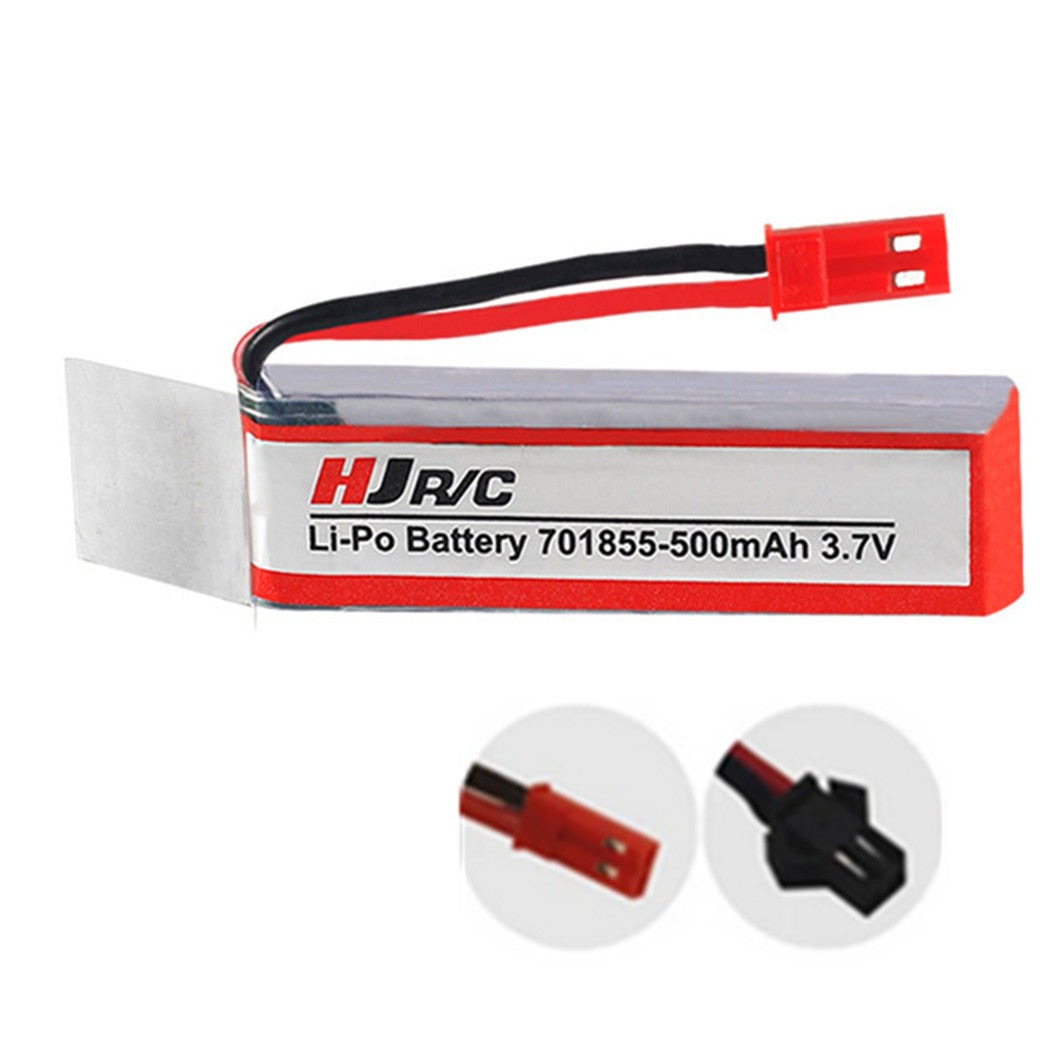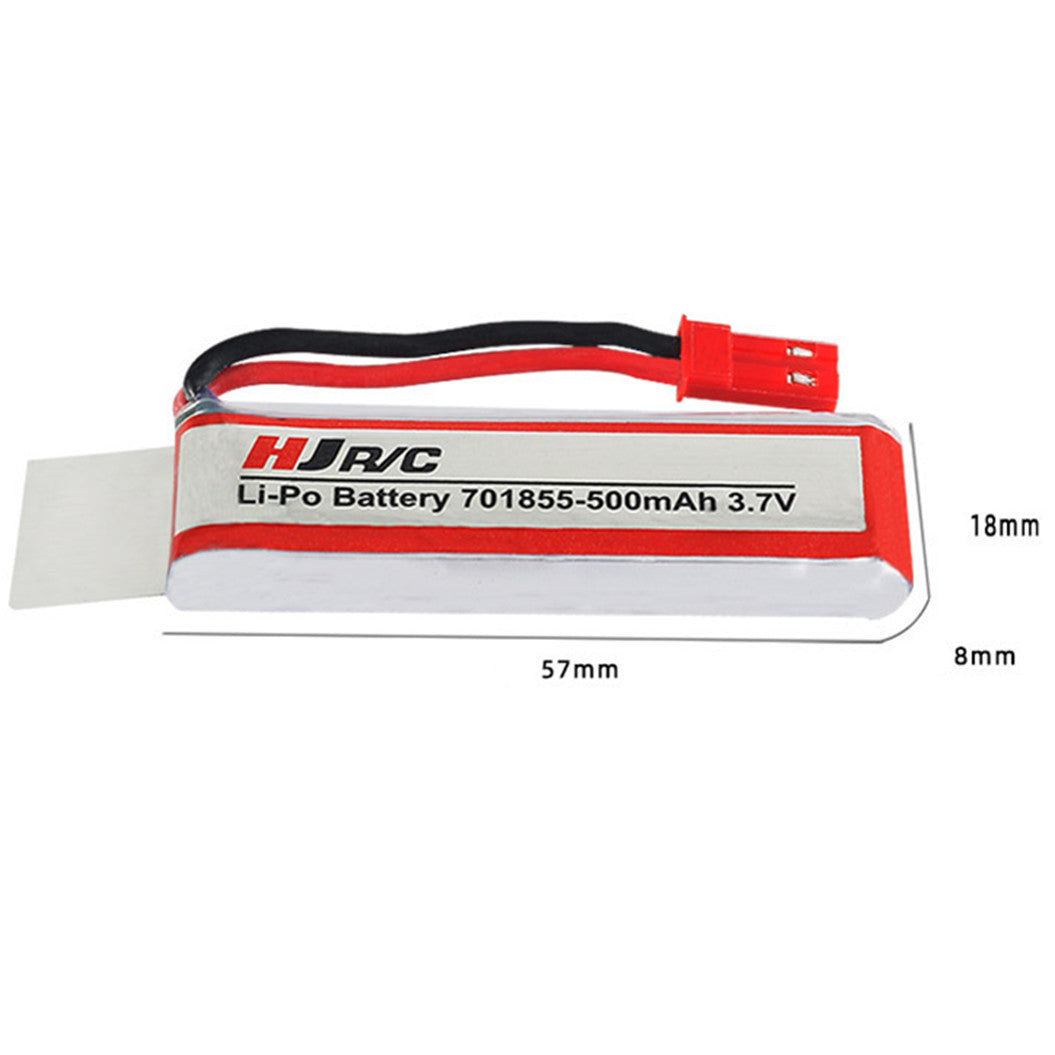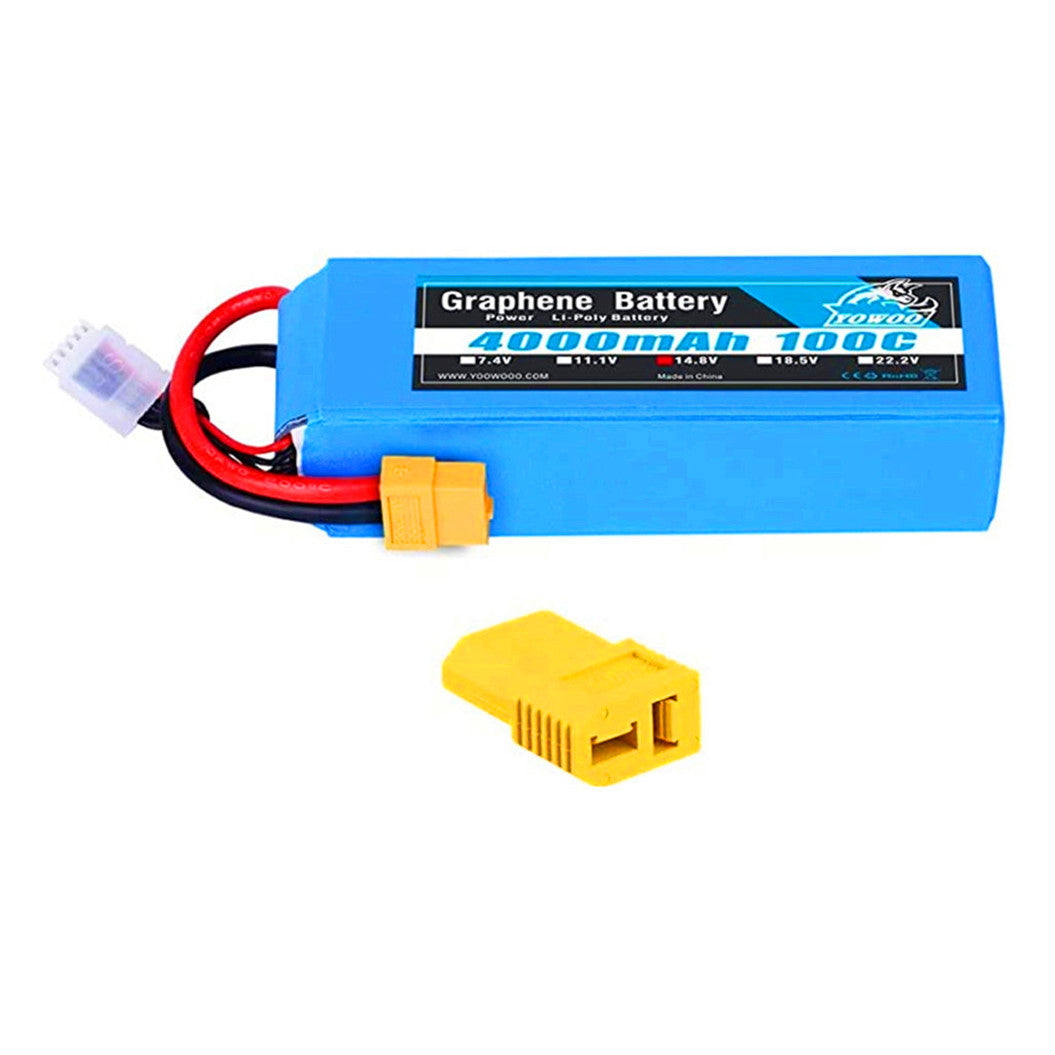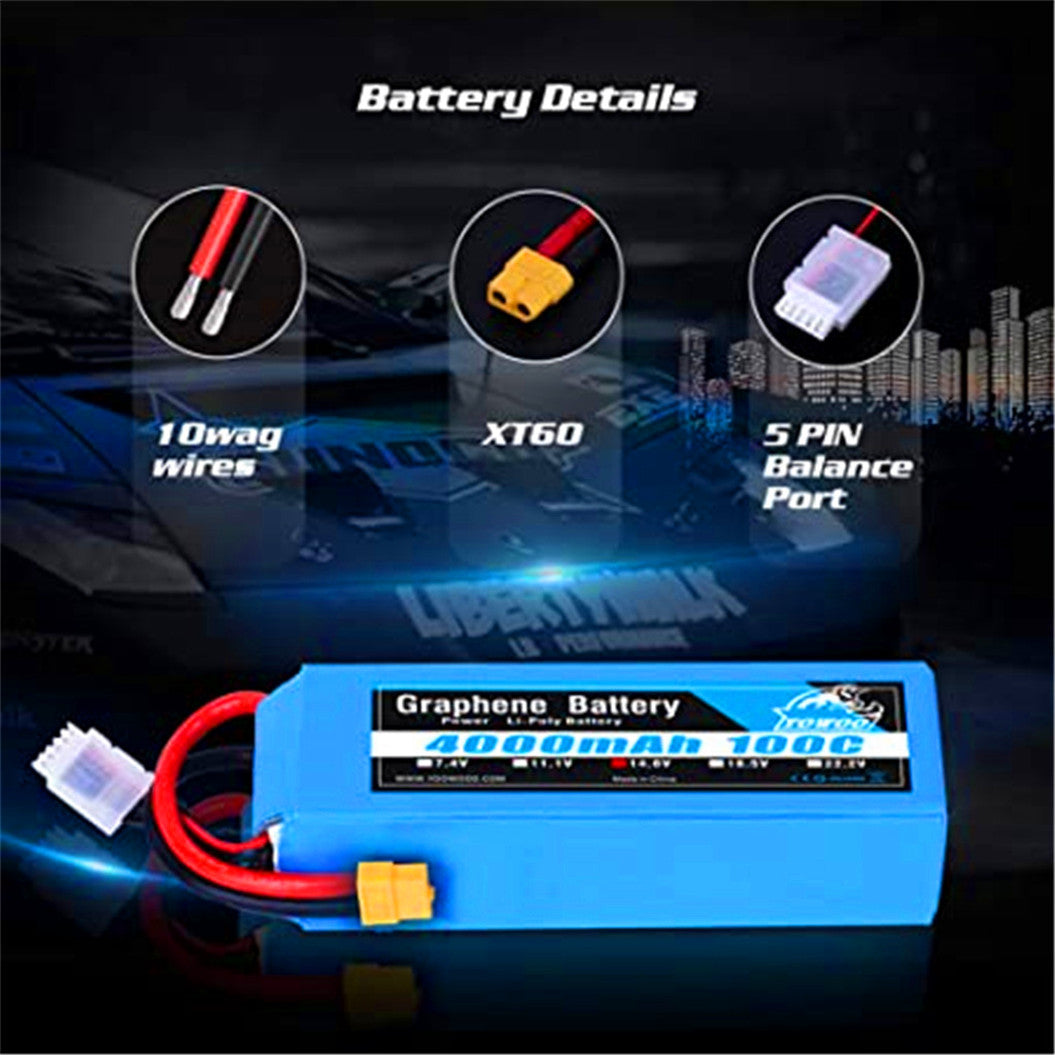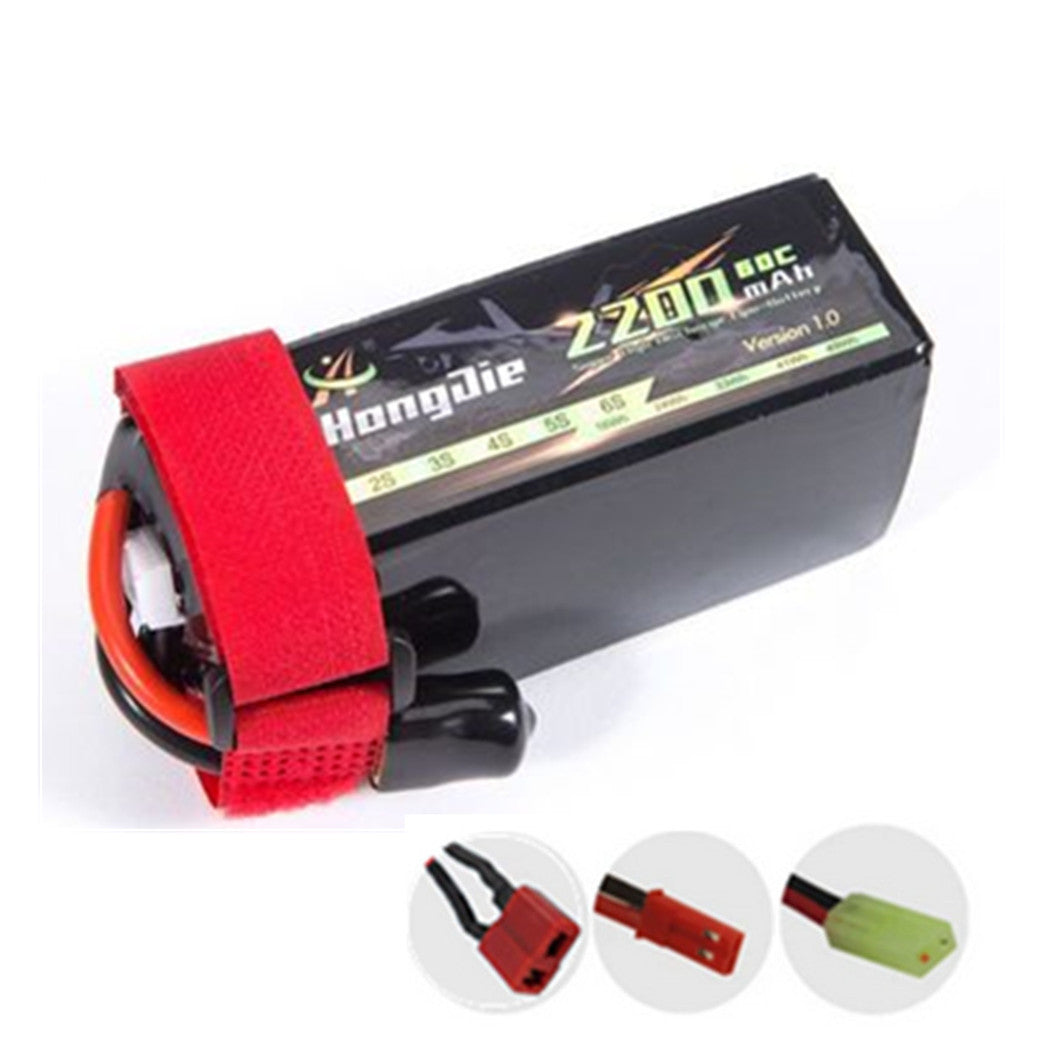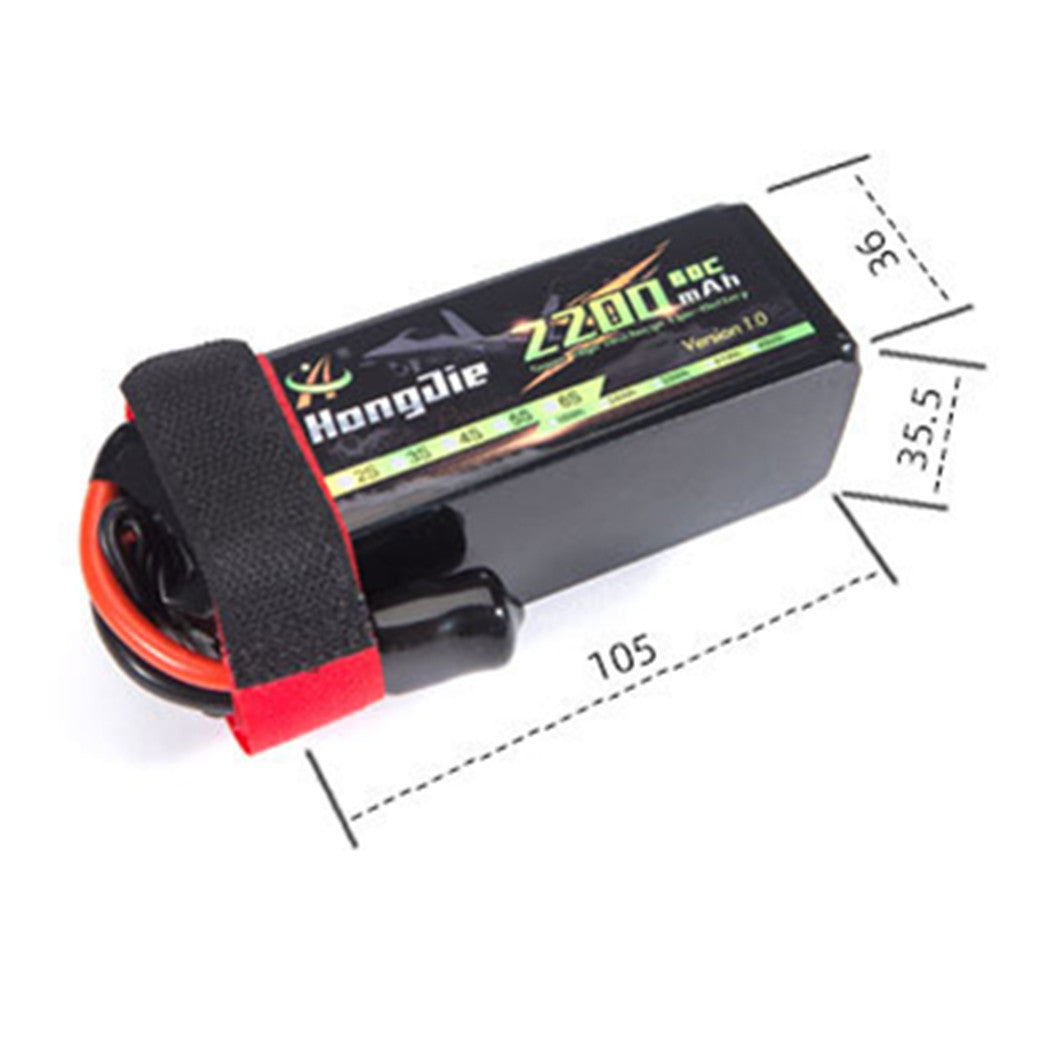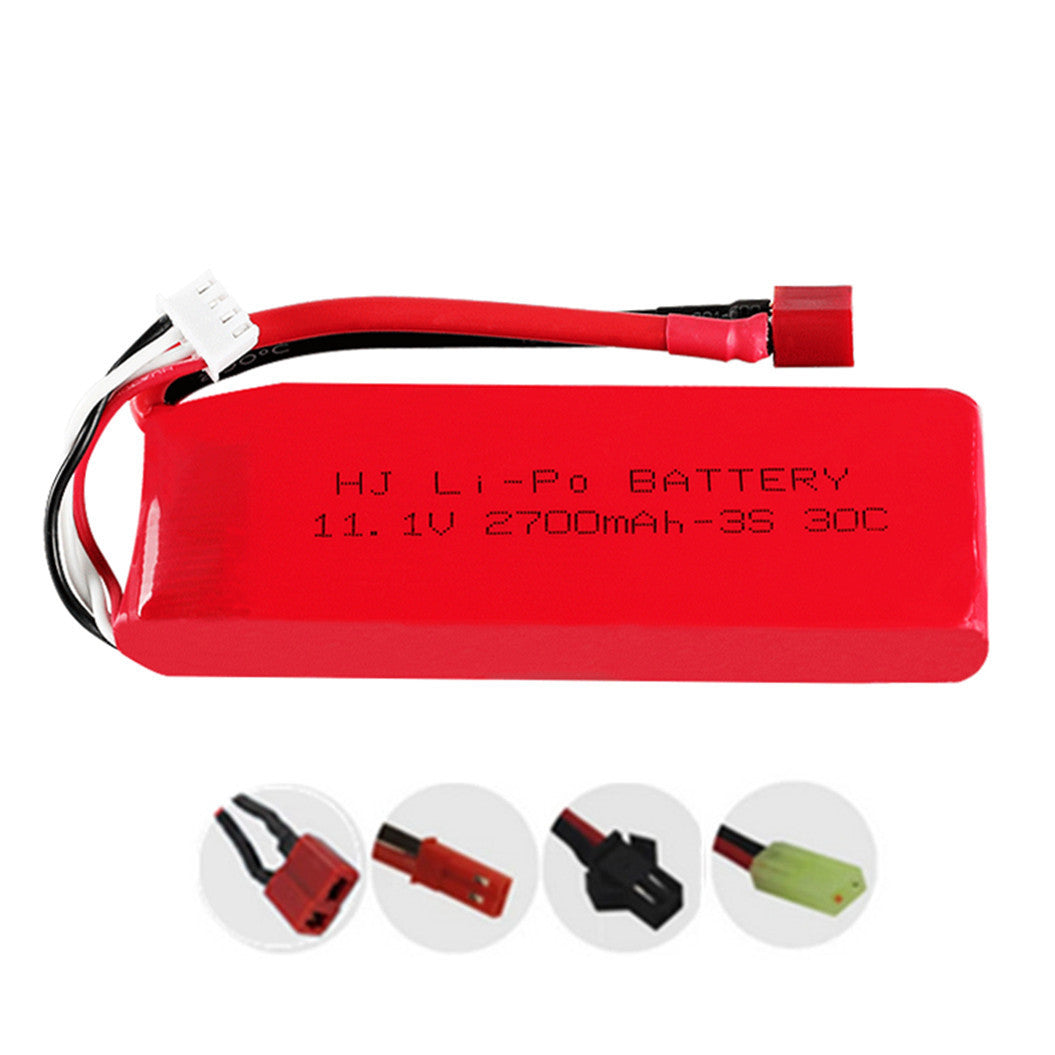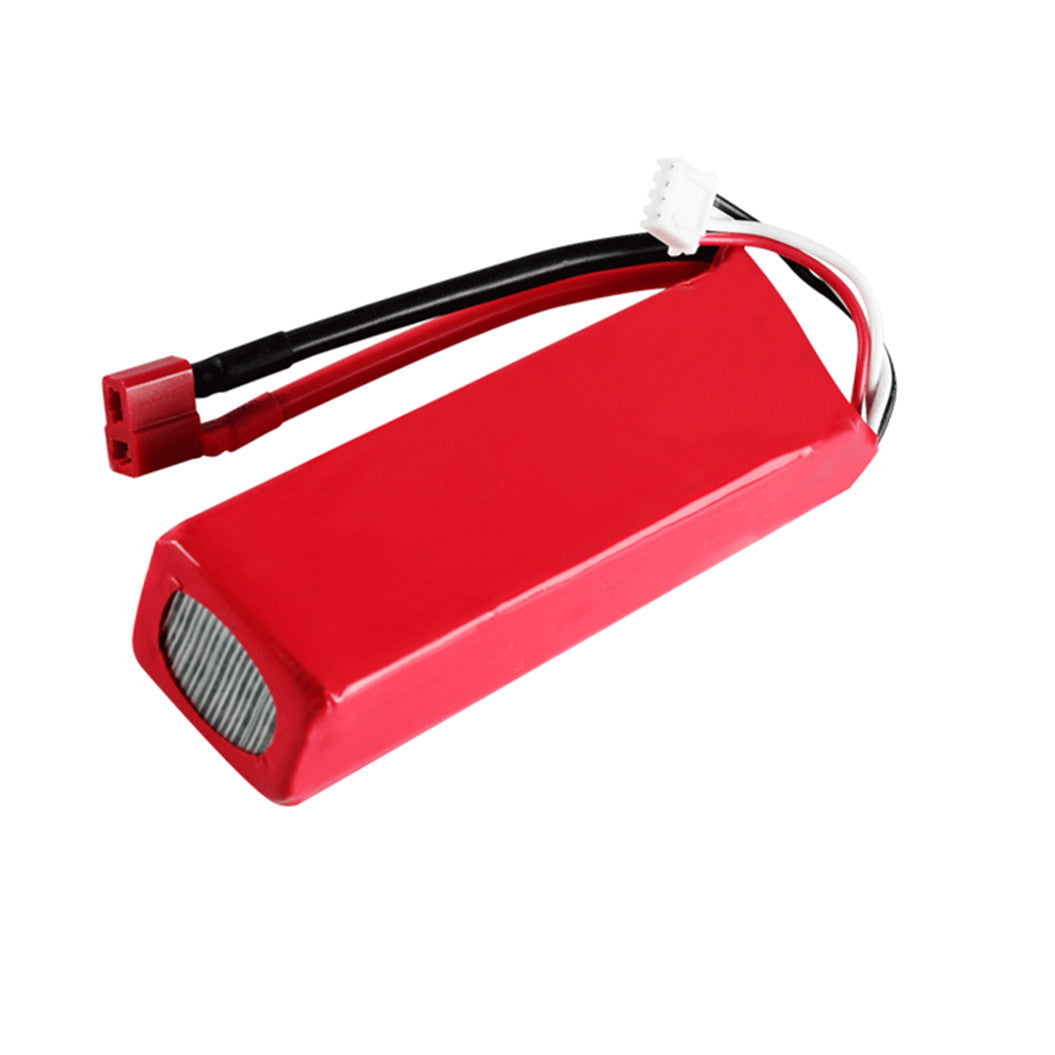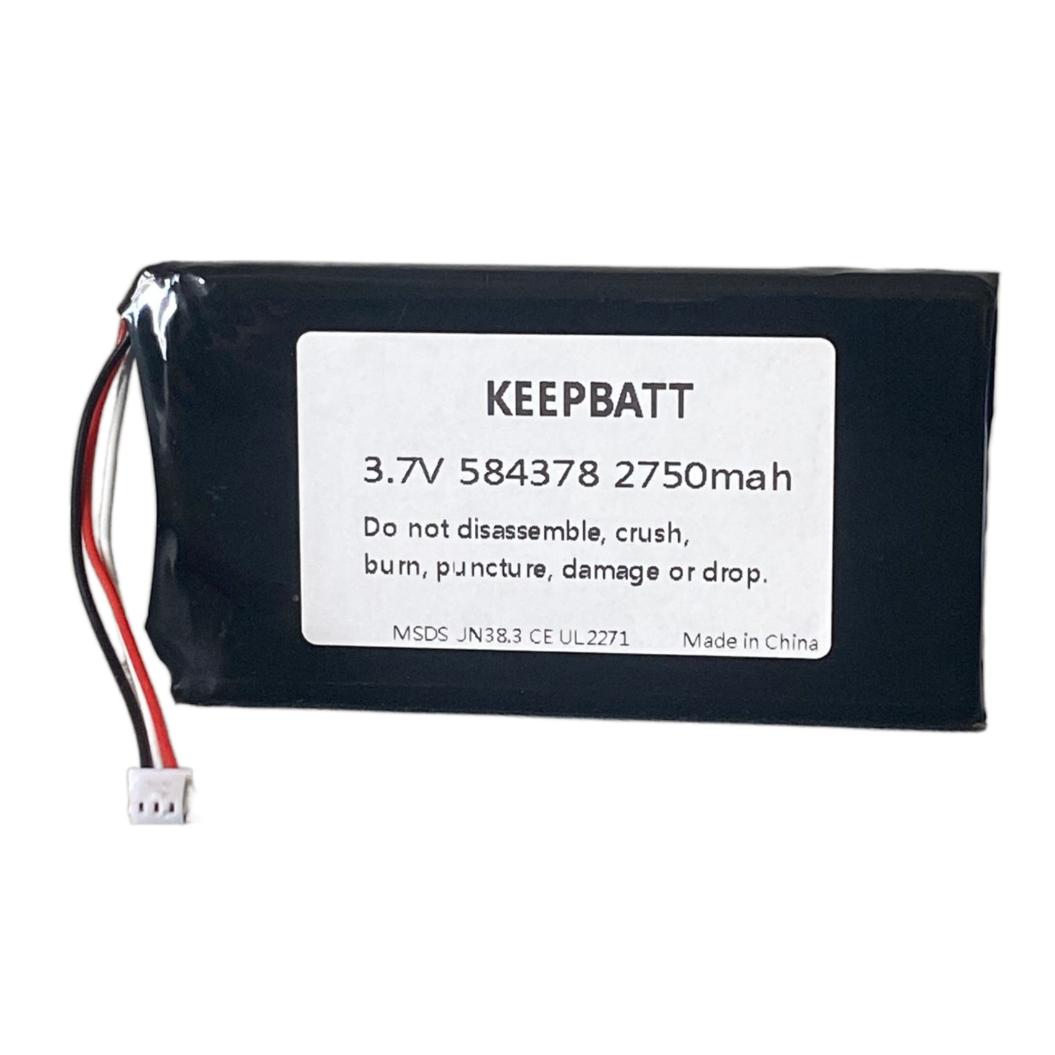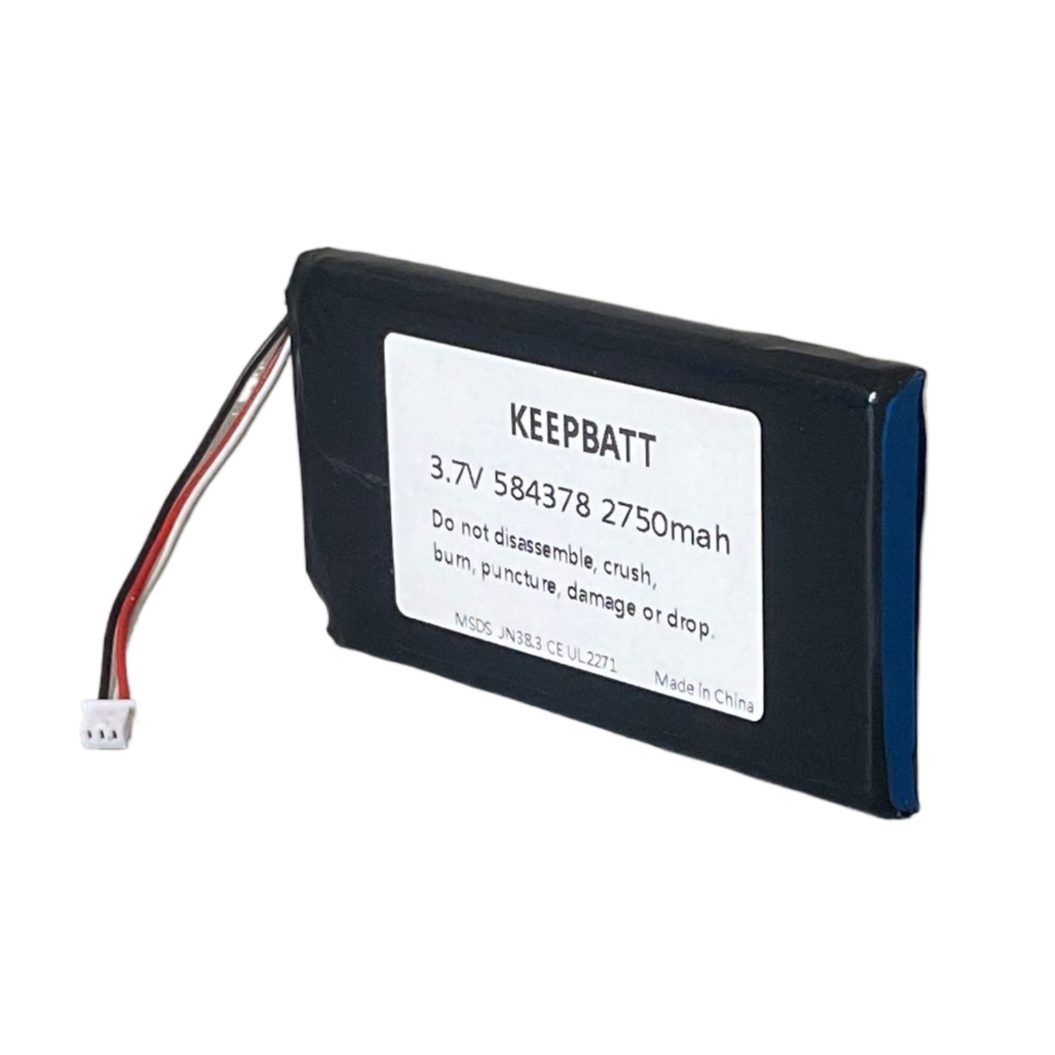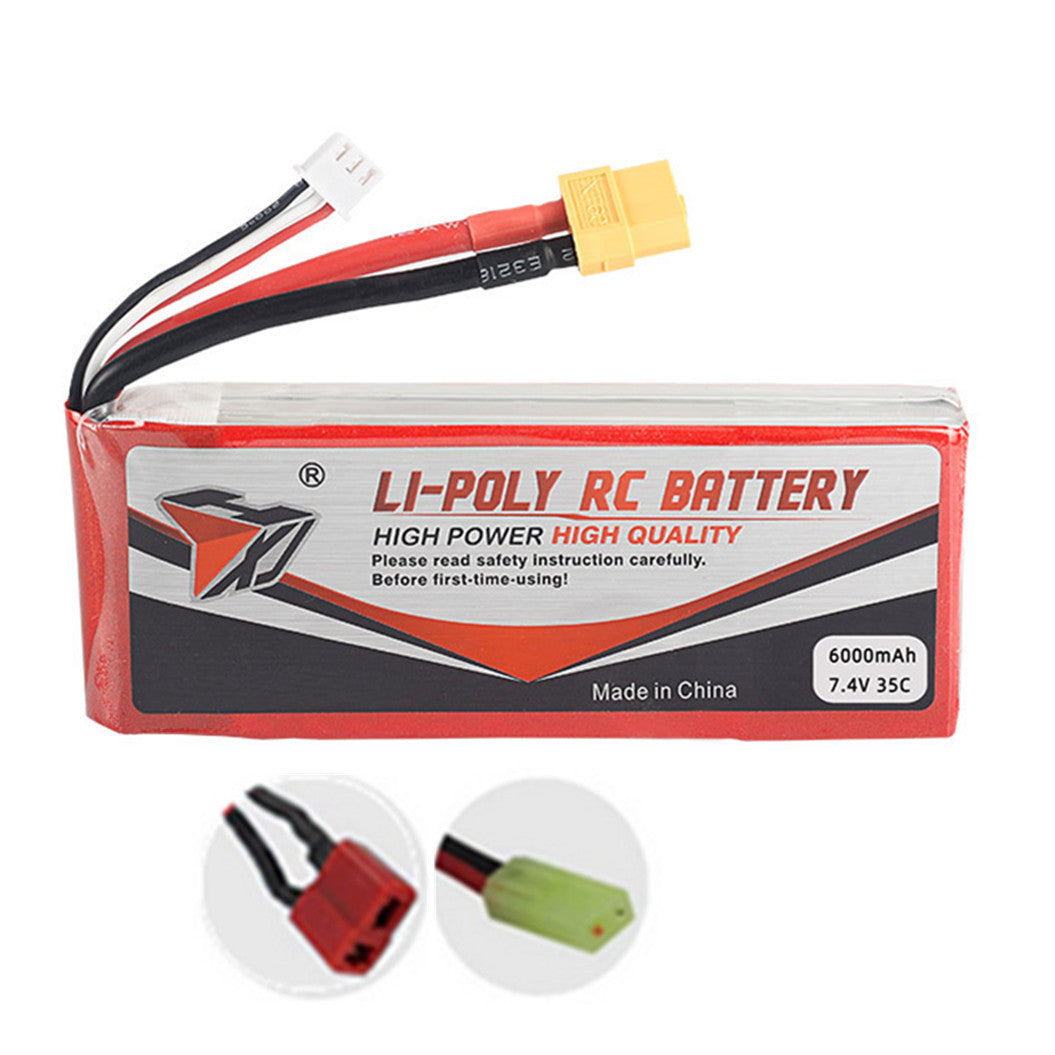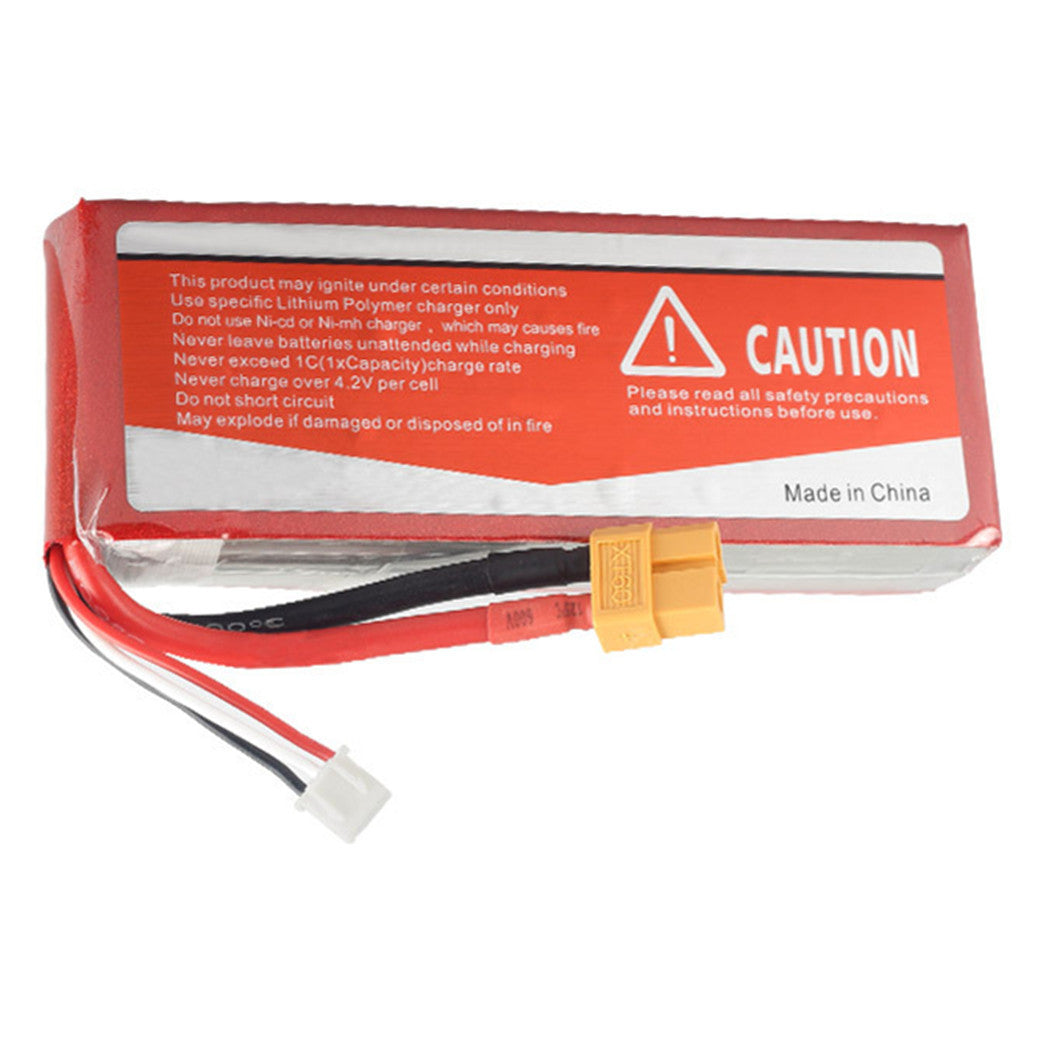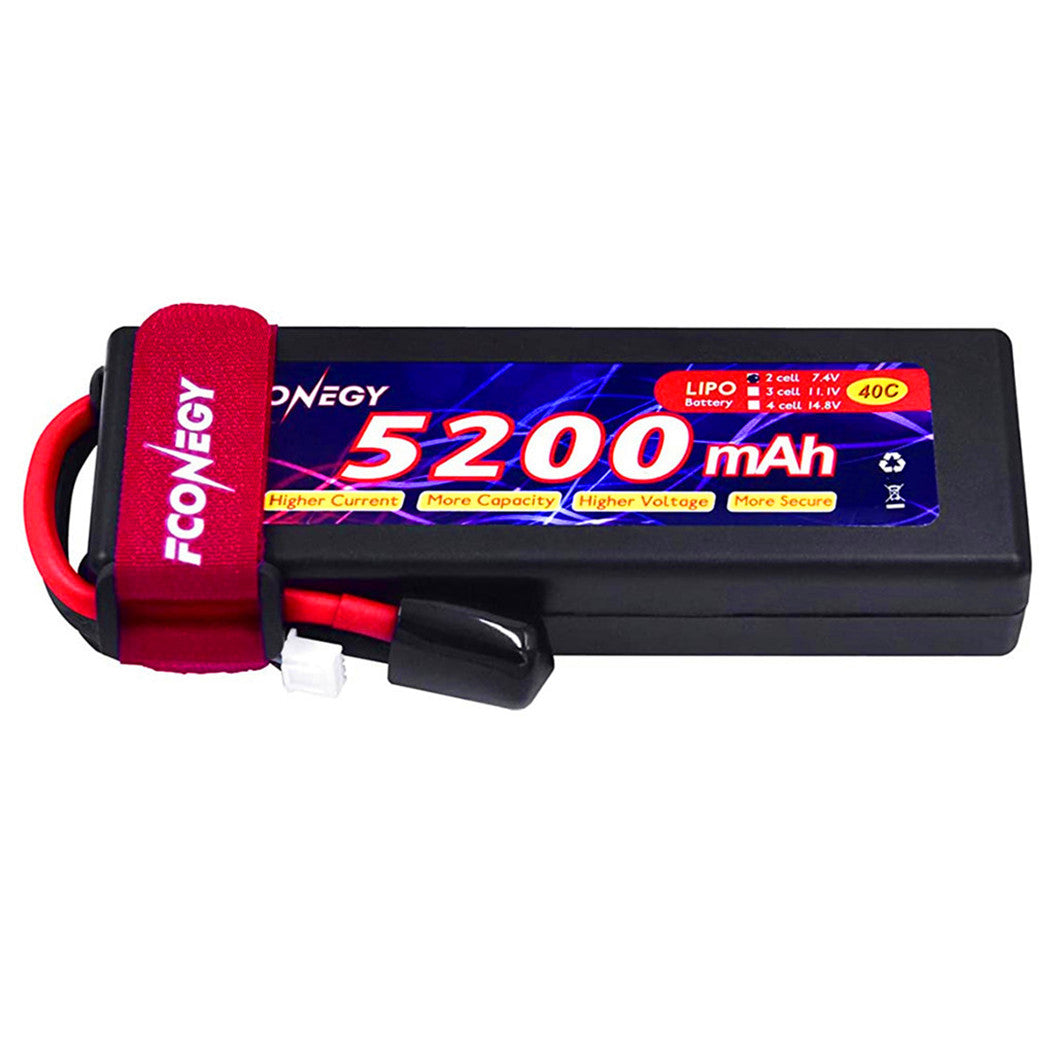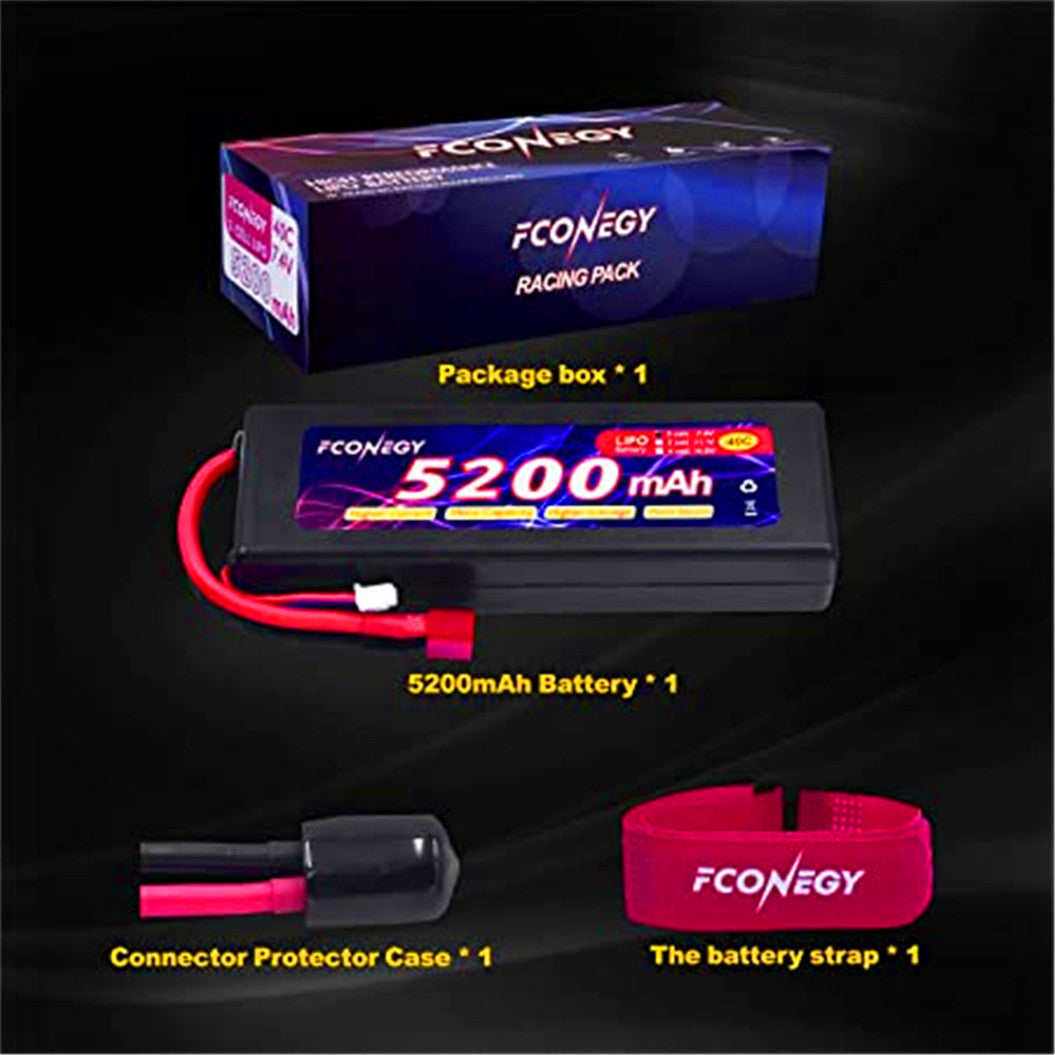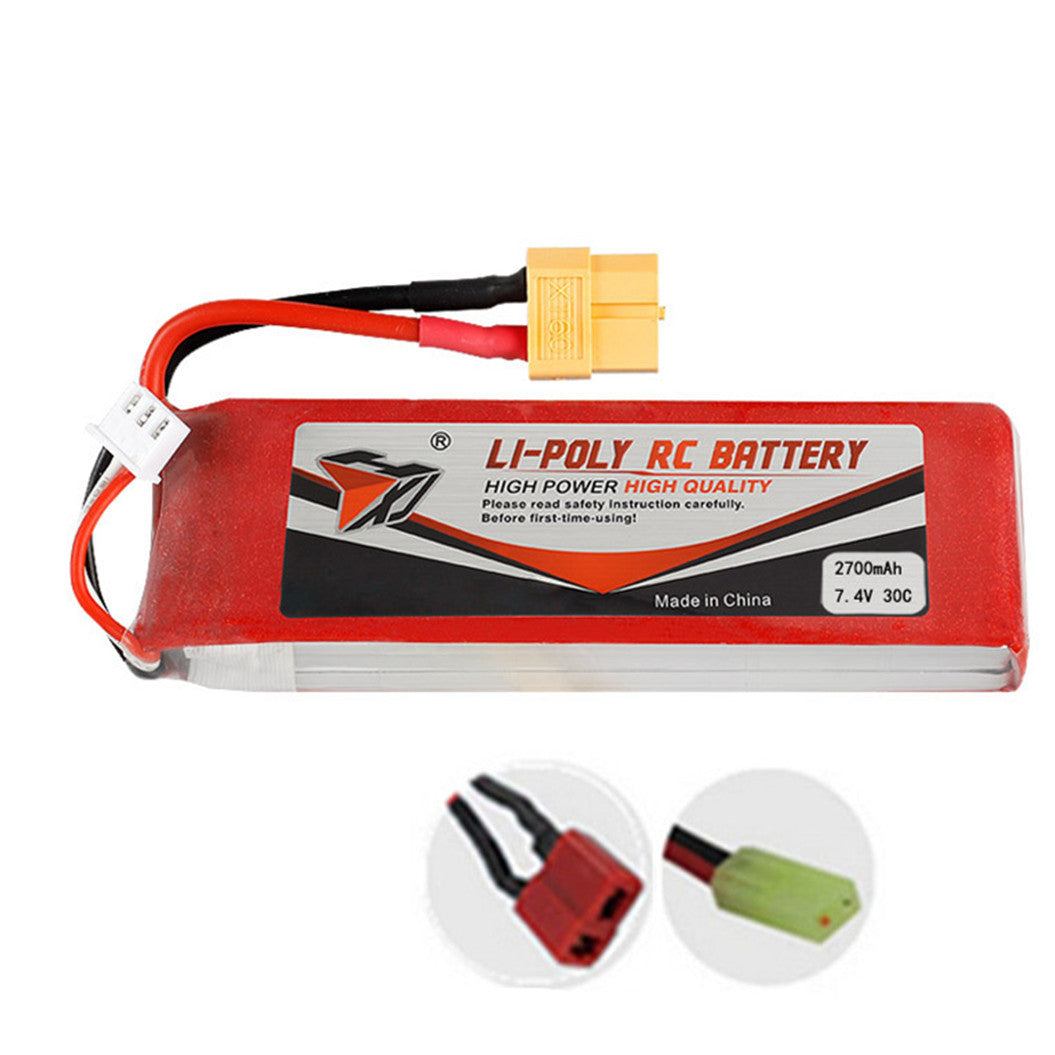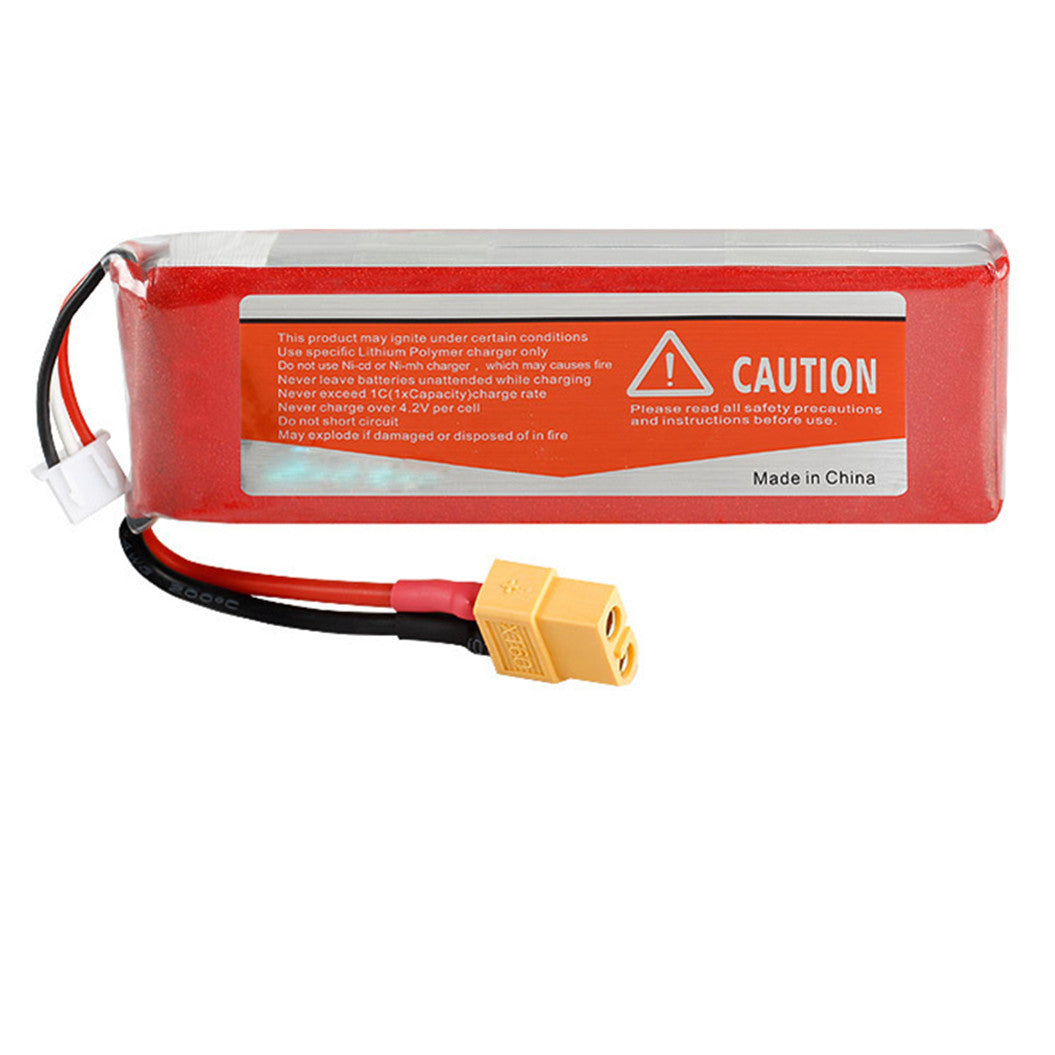-
Verkoper:BATTERYINT
7.4 V 3600 mAh LiPo-batterij voor MJX Bugs 3, Force1 F100, Contixo F17 Quadcopter
- Normale prijs
- $29.99
- Normale prijs
-
- Aanbiedingsprijs
- $29.99
- Eenheidsprijs
- per
7.4 V 3600 mAh LiPo-batteri... -
Verkoper:BATTERYINT
2 stuks 3.7V 600mAh 721862 Li-Polymer Batterij voor UDI U818A U817 WLtoys V959 V929 RC Quadcopter
- Normale prijs
- $17.50
- Normale prijs
-
- Aanbiedingsprijs
- $17.50
- Eenheidsprijs
- per
2 stuks 3.7V 600mAh 721862 ... -
Verkoper:BATTERYINT
7.4V 4000mAh LiPo RC-batterij met Deans T-connector voor RC Buggy, Traxxas, LOSI, Team Associated
- Normale prijs
- $29.99
- Normale prijs
-
- Aanbiedingsprijs
- $29.99
- Eenheidsprijs
- per
7.4V 4000mAh LiPo RC-batter... -
Verkoper:BATTERYINT
2300mAh 11.1V Lipo batterij voor RC auto / boot / helikopter type
- Normale prijs
- $39.97
- Normale prijs
-
- Aanbiedingsprijs
- $39.97
- Eenheidsprijs
- per
2300mAh 11.1V Lipo batterij... -
Verkoper:BATTERYINT
2 stuks 3.7V 500mAh Lithium Batterij voor Modelvliegtuig, Automodel, Schipmodel
- Normale prijs
- $15.00
- Normale prijs
-
- Aanbiedingsprijs
- $15.00
- Eenheidsprijs
- per
2 stuks 3.7V 500mAh Lithium... -
Verkoper:BATTERYINT
14.8V 4000mAh Batterij met XT60 en Deans T Connector voor Vliegtuig, Multi-Rotor, Auto, Vrachtwagen, Boot
- Normale prijs
- $73.05
- Normale prijs
-
- Aanbiedingsprijs
- $73.05
- Eenheidsprijs
- per
14.8V 4000mAh Batterij met ... -
Verkoper:BATTERYINT
14.8V 2200mAh 4S 853496 Li-Polymeer Batterij voor RC Vliegtuig, Helicopter, Quadcopter
- Normale prijs
- $50.00
- Normale prijs
-
- Aanbiedingsprijs
- $50.00
- Eenheidsprijs
- per
14.8V 2200mAh 4S 853496 Li-... -
Verkoper:BATTERYINT
11.1V 2700mAh 803496 Li-Polymeer batterij voor FT012 Borstelloze RC Boot reserveonderdeel
- Normale prijs
- $36.50
- Normale prijs
-
- Aanbiedingsprijs
- $36.50
- Eenheidsprijs
- per
11.1V 2700mAh 803496 Li-Pol... -
Verkoper:BATTERYINT
3.8V 2570mAh Replacement Samsung 584378 Polymer Lithium Battery with 3-Wire PCB
- Normale prijs
- $18.90
- Normale prijs
-
- Aanbiedingsprijs
- $18.90
- Eenheidsprijs
- per
3.8V 2570mAh Replacement Sa... -
Verkoper:BATTERYINT
7.4V 6000mAh Li-Polymeer batterij voor RC Racing Drone, Helicopter, Auto, Boot, enz.
- Normale prijs
- $48.50
- Normale prijs
-
- Aanbiedingsprijs
- $48.50
- Eenheidsprijs
- per
7.4V 6000mAh Li-Polymeer ba... -
Verkoper:BATTERYINT
7.4V 5200mAh LiPo Batterij met Deans T-connector voor RC Tanks, RC Trucks en Boten, Grasshopper RC Cars
- Normale prijs
- $29.90
- Normale prijs
-
- Aanbiedingsprijs
- $29.90
- Eenheidsprijs
- per
7.4V 5200mAh LiPo Batterij ... -
Verkoper:BATTERYINT
7.4V 5200mAh 803496 Li-Polymeer Batterij voor FEIYUE FY-03 Wltoys 12428
- Normale prijs
- $26.00
- Normale prijs
-
- Aanbiedingsprijs
- $26.00
- Eenheidsprijs
- per
7.4V 5200mAh 803496 Li-Poly...
Showing 1 -12 of 40 items
1. What is the difference between a NiMH and a LiPo RC car battery?
The main difference between NiMH and LiPo RC car batteries is their performance and usage characteristics. An RC car LiPo battery offers higher power output, lighter weight, and better energy density, which makes it ideal for competitive racing and longer run times. However, LiPo batteries require more care in handling and charging. On the other hand, NiMH batteries are more durable, easier to maintain, and safer, making them a great option for beginners. Ultimately, the choice depends on the user’s needs and experience level with RC car batteries.
2. How long do RC car batteries typically last before needing replacement?
The lifespan of an RC car battery depends on factors such as usage, care, and the type of battery. NiMH batteries for RC cars generally last between 1 to 2 years, while a well-maintained RC car LiPo battery can last up to 3 years or more. It’s important to store your batteries properly, avoid overcharging, and refrain from fully discharging them to maximize their lifespan. Monitoring the performance of your RC car battery will also help you know when it’s time for a replacement.
3. How do I safely charge my RC car LiPo battery?
Charging an RC car LiPo battery requires attention to safety due to its sensitive nature. Always use a charger specifically designed for LiPo batteries, as using an incorrect charger can cause overheating or even fire. It’s important to charge the battery in a fire-resistant container or bag and never leave it unattended while charging. Ensuring the battery is balanced-charged using the appropriate settings will also extend its life and maintain performance. Charging practices are crucial for the longevity and safety of RC car batteries.
4. Can I use a higher voltage battery in my RC car for better performance?
Using a higher voltage RC car battery can indeed increase performance, providing more speed and power. However, you must ensure that your RC car’s motor, ESC (electronic speed controller), and other components are rated to handle the higher voltage, especially if switching to an RC car LiPo battery. Failure to match the correct battery voltage with the car’s specifications could result in damage to your RC car or significantly shorten the life of your components. Always check your RC car’s manual before upgrading the battery.
5. What are the best practices for storing RC car batteries?
Proper storage of RC car batteries is key to prolonging their lifespan. Always store your RC car LiPo battery at a partial charge (around 50%) if you won’t be using it for an extended period. LiPo batteries should be stored in a fireproof bag and in a cool, dry place. For NiMH batteries, storing them fully charged in similar conditions is ideal. Avoid storing batteries for RC cars in hot or humid environments, as this can degrade the cells and reduce their effectiveness over time.
6. How can I tell if my RC car battery is damaged?
Signs of a damaged RC car battery include swelling, leakage, or an inability to hold a charge. For an RC car LiPo battery, puffing (swelling) is a common indicator of damage, which can occur if the battery is overcharged or improperly stored. If your RC car battery heats up excessively during use or charging, this is another warning sign. Damaged batteries should be handled carefully and disposed of properly, as they can be hazardous. Always inspect your batteries for RC cars before and after use to ensure they are in good condition.
7. How long does it take to charge an RC car battery?
The charging time for an RC car battery depends on its capacity and the charger used. On average, NiMH batteries take about 2 to 4 hours to charge, while an RC car LiPo battery may take 1 to 2 hours with a balanced charger. Fast chargers can reduce this time, but it’s important not to rush the process, as improper charging can reduce the lifespan of the battery. Always refer to the manufacturer’s recommendations for charging times to ensure safe and efficient charging of your RC car batteries.
8. How can I improve the run time of my RC car battery?
To improve the run time of your RC car battery, you can upgrade to a higher capacity battery or reduce the strain on your RC car’s components. For example, switching to a more efficient motor or using lighter materials in your car can help extend the run time. An RC car LiPo battery often provides better performance and longer run times compared to NiMH batteries for RC cars. Additionally, proper battery maintenance, such as balancing the charge and avoiding full discharges, can help optimize the run time of your RC car battery.
9. Are RC car batteries waterproof?
RC car batteries, particularly RC car LiPo batteries, are not inherently waterproof. If you plan to run your RC car in wet conditions, you’ll need to take precautions to protect the battery from water exposure, such as using a waterproof enclosure. Water can damage the internal cells and wiring of the batteries for RC cars, leading to short circuits or permanent damage. Ensuring your RC car is waterproofed and that the battery is properly sealed is essential for maintaining its performance in damp environments.
10. How do I dispose of old or damaged RC car batteries?
Disposing of RC car batteries, especially LiPo batteries, should be done through proper recycling centers to prevent environmental damage. LiPo batteries must be fully discharged before disposal, as they can be hazardous if not handled correctly. Many local electronics stores or recycling facilities accept batteries for RC cars for safe disposal. Never throw an RC car LiPo battery or any other type of RC car battery in regular trash bins, as they pose risks of fire or chemical leaks.


